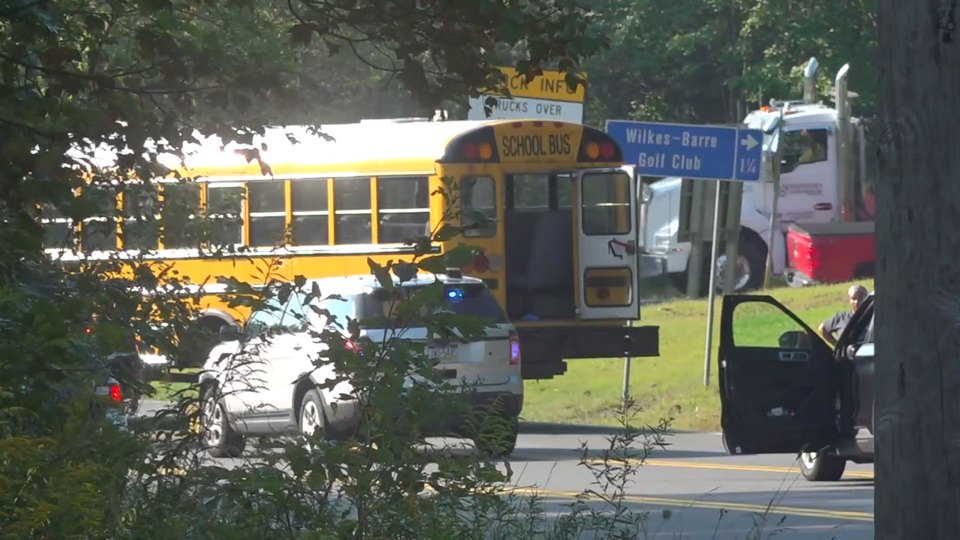Cancellation Of Park Music Festivals: Impact Of Court Ruling

Table of Contents
Legal Ramifications of the Court Ruling
The court's decision has far-reaching legal ramifications for park music festivals and similar outdoor events. It fundamentally alters the landscape of event planning and necessitates a more stringent approach to legal compliance.
Noise Pollution Ordinances and Their Enforcement
The ruling imposes stricter noise level limits than previously enforced, significantly impacting festival organizers. These new ordinances necessitate meticulous planning and potentially expensive noise mitigation strategies.
- Examples of festivals affected: The "Summer Sounds" festival in Willow Creek Park and the "Harmony Hills" festival in Oakhaven were among the first to face cancellation due to non-compliance.
- Specific decibel limits: The ruling mandates a maximum average sound level of 70 decibels during daytime hours and 60 decibels at night, significantly lower than previous limits.
- Penalties for non-compliance: Penalties now include hefty fines, event suspension, and even potential legal action against organizers.
- Challenges of enforcement: Enforcing noise regulations in outdoor settings presents significant logistical challenges, particularly with varying wind conditions and sound reflection from natural elements.
Environmental Impact Assessments and Permits
The ruling introduces stricter requirements for environmental impact assessments before permits are granted for music festivals in parks. This involves a more thorough evaluation of the festival’s potential environmental footprint.
- Types of environmental impact considered: Assessments now consider waste management strategies (recycling rates, landfill diversion), water usage (both for attendees and event operations), and the impact on local flora and fauna (noise pollution, habitat disturbance).
- Increased permitting costs: The thoroughness of these assessments leads to significantly increased permitting costs for organizers.
- Impact on ticket prices: These increased costs are likely to be passed on to consumers, potentially resulting in higher ticket prices for attendees.
Liability and Insurance Implications
The ruling increases liability risks for event organizers, necessitating a re-evaluation of insurance policies and risk management strategies.
- Examples of potential liabilities: Organizers now face potential liabilities for noise-related health issues among attendees or performers, environmental damage to the park, and other unforeseen consequences.
- Increased insurance premiums: Insurance companies are likely to increase premiums to reflect the heightened risk profile for park music festivals.
- Adjusting insurance policies: Organizers need to adjust their insurance policies to adequately cover the expanded range of potential liabilities.
Economic Impact on Local Communities
The cancellation of park music festivals has a significant ripple effect on local economies, impacting businesses and employment opportunities.
Loss of Revenue for Local Businesses
The cancellation of festivals translates directly to a loss of revenue for numerous local businesses that rely on the influx of attendees.
- Estimated economic losses: Preliminary estimates suggest millions of dollars in lost revenue for local hotels, restaurants, shops, and other businesses in affected communities.
- Job losses: The cancellation also leads to job losses for temporary event staff, as well as reduced hours for permanent employees in hospitality and related sectors.
- Impact on tourism: The reduction in tourism associated with festival cancellations has a broader economic impact on local communities.
- Potential government interventions: Government interventions, such as financial assistance programs or tax breaks, may be necessary to mitigate the economic fallout.
Impact on Local Employment
The cancellation of festivals results in significant job losses, impacting both temporary and permanent employment.
- Examples of affected jobs: This includes event staff, security personnel, vendors, food and beverage workers, and transportation services.
- Potential for retraining programs: Retraining programs might be necessary to help affected workers transition to new employment opportunities.
- Long-term consequences: The long-term consequences of job losses could include increased unemployment rates and strain on social support systems in affected communities.
Future of Park Music Festivals
The future of park music festivals hinges on adapting to the new regulations, navigating the economic challenges, and engaging in public advocacy.
Adapting to the New Regulations
Festival organizers must adapt to the new regulatory landscape to ensure future events can proceed.
- Using noise-reducing technologies: Investing in noise-reducing technologies, such as sound barriers and advanced sound systems, is crucial.
- Improved waste management strategies: Implementing comprehensive waste management plans with high recycling rates is essential for compliance.
- Alternative event locations: Exploring alternative event locations, such as privately-owned venues with different noise regulations, could be considered.
- Smaller, more sustainable festivals: Smaller-scale, more environmentally conscious festivals could become the new norm.
Public Pressure and Advocacy
Public pressure and advocacy play a crucial role in shaping the future of park music festivals.
- Public campaigns: Public campaigns can raise awareness about the economic and cultural impacts of the court ruling.
- Petitions: Petitions can be used to voice public support for park music festivals and encourage a more balanced regulatory approach.
- Community engagement: Community engagement is crucial to find solutions that protect environmental interests while preserving the cultural benefits of these events.
Conclusion:
The court ruling regarding the cancellation of park music festivals has far-reaching consequences, impacting legal frameworks, local economies, and the future of outdoor music events. Understanding the implications of this decision is crucial for all stakeholders. Festival organizers must adapt to the new regulations, local communities need to address the economic impact, and advocates need to voice their concerns to ensure a balanced approach that protects both environmental interests and the vibrancy of our cultural events. To stay informed about further developments and learn more about navigating the changing landscape of park music festivals, continue following our updates on [link to relevant page/website].

Featured Posts
-
 Bmw And Porsches China Challenges A Growing Trend
May 19, 2025
Bmw And Porsches China Challenges A Growing Trend
May 19, 2025 -
 Independencia Del Cne Segun Ana Paola Hall
May 19, 2025
Independencia Del Cne Segun Ana Paola Hall
May 19, 2025 -
 Primarias 2025 El Cne Recibe 18 Recursos De Nulidad
May 19, 2025
Primarias 2025 El Cne Recibe 18 Recursos De Nulidad
May 19, 2025 -
 Collier County School Bus Safety Concerns Raised After Children Wrongly Dropped Off
May 19, 2025
Collier County School Bus Safety Concerns Raised After Children Wrongly Dropped Off
May 19, 2025 -
 Giortes Maioy Stin Kastoria Poy Na Tis Vreite Kai Ti Na Perimenete
May 19, 2025
Giortes Maioy Stin Kastoria Poy Na Tis Vreite Kai Ti Na Perimenete
May 19, 2025
